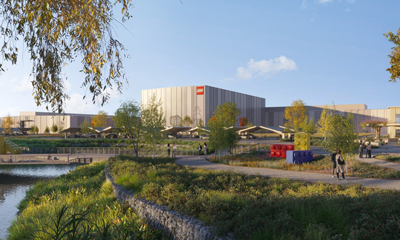The LEGO Group pledges to achieve net-zero emissions by 2050
Billund, Denmark – The LEGO Group pledged to achieve net-zero greenhouse gas (GHG) emissions by 2050 as part of its continued efforts to reduce environmental impact. The company has submitted its intention to the Science Based Target initiative (SBTi) and will work with the SBTi to develop a target which will cover Scope 1, 2 & 3 emissions.
The pledge is an extension of its existing near-term climate target to reduce GHG emissions by 37% by 2032 from a 2019 base, which was previously approved by the SBTi.
Niels B Christiansen, CEO, the LEGO Group said: “Our immediate priority is to meet our 2032 carbon reduction targets and we’re making progress across a range of initiatives. This new, long-term goal will ensure that the decisions we make today will reduce our carbon footprint over the coming decades. It will also encourage future generations of LEGO employees, partners and suppliers to continue working with a sense of urgency to reduce the environmental impact of our business.
“We know that children are looking to us to do what’s right. Caring for the environment is one of their top concerns and we receive hundreds of letters a year with great ideas from kids on how we can make a difference. They are holding us to account, and we must set ambitious goals and take meaningful and lasting actions to protect their futures.”
The LEGO Group will seek to work with the SBTi to develop the net-zero target over the next two years, whilst developing a climate transition plan demonstrating a roadmap to achieving the target.
The LEGO Group plans to triple its investment in environmental sustainability over the next three years, particularly in areas that will help reduce GHG emissions, spending more than $1.4 billion on sustainability-related activities.
Beyond this activity, the company will also continue to invest in initiatives to reduce carbon globally that may not count towards achieving the SBTi-approved target at this stage. This includes exploring compensation actions, such as supporting carbon capture programmes, and scaling up a mass balance approach to reduce reliance on fossil fuels as a raw material.
Christiansen said: “Our first priority is to measurably reduce our carbon emissions, but the challenge is vast, and we are taking steps across all areas of our business to reduce our environmental impact.”

